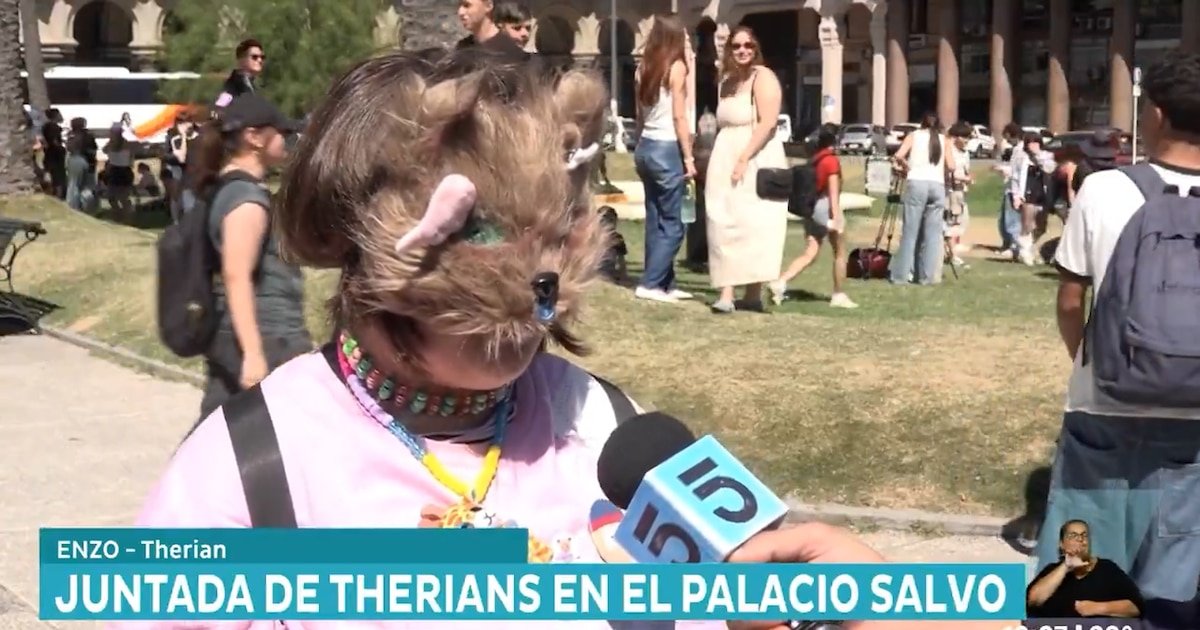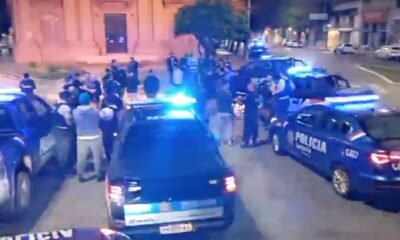INTERNACIONAL
“No soy de ir a la iglesia, pero al final me he emocionado”, “Francisco era un sueño”: lágrimas y largas esperas para despedir a Francisco en Roma

“Él nos ha enseñado a no rendirnos”, zanja Francesco a la salida del funeral de Francisco. El tiempo en Roma suele decirse que se mide de otra manera, pero la magnitud de unas exequias papales permiten situarlas entre los grandes acontecimientos de la historia. Y más si se trata de las del papa Francisco, un pontífice tan amado entre la gente que su funeral ha convertido el Vaticano y sus alrededores en un gran y compartido ritual de paso hacia otra era para la iglesia que aún no podemos conocer.
Esa es la sensación entre todos aquellos que se han congregado en la plaza de San Pedro y sus alrededores para asistir al funeral multitudinario de más de 200.000 personas que se ha oficiado en el Vaticano tras la muerte del papa Francisco, que murió este lunes 21 de abril a los 88 años tras un ictus y varias semanas de ingreso por una neumonía.

Tras tres días de capilla ardiente y una vigilia que se ha celebrado en San Pedro, los primeros asistentes al funeral han llegado a la plaza sobre las 5:00 o 5:30 horas. El funeral empezaba a las 10 y ha acabado sobre las 12:15: para muchos, han sido hasta seis horas de espera. Claudia, una mujer argentina que había venido a Roma por la canonización (ahora paralizada) de Carlo Acutis, descansa sentada tras las largas horas de misa y el potente sol de la primavera romana. Cuenta a Infobae que ayer fue a verle a la capilla ardiente: “Me emocioné, lloré mucho”. También cree que Francisco “deja un mensaje de misericordia que es justo lo que necesita el mundo”.

Mismo sentimiento que Francesco, un hombre que viene de Nápoles y que tenía un viaje programado desde hace tiempo a Roma, pero que se ha acercado a darle un último adiós al papa. Con gesto serio, pensativo, reflexiona sobre la importancia de una voz como la de Francisco en el mundo actual: “Lo que más me angustia es que a pesar de todos los mensajes de paz, el mundo parece que avanza hacia su propia dirección”.
Se queda callado antes de añadir algo con lo que Jorge Bergoglio habría estado muy de acuerdo: “Pero él nos ha enseñado a no rendirnos”.
Lo cierto es que la actualidad ha estado muy presente en el último adiós de Francisco: su funeral ha propiciado una minicrumbre -“muy productiva”, según ha dicho Trump y han recogido las agencias- entre Trump y Zelenski en el propio Vaticano.

Se escuchan miles de acentos diversos entre la multitud, donde también hay muchísimos jóvenes. Una familia española, con sus cuatro hijos pequeños, se ha levantado a las 6:00 de la mañana para coger los sitios buenos en la plaza, cerca de la ceremonia. “Ayer fuimos a la capilla ardiente, pero esta tarde al Coliseo y mañana ya toca descansar y comer un helado”, explican. Cuando les preguntamos por qué quiere para el futuro de la iglesia tras Francisco, no tienen dudas: se acogen “al espíritu santo” y a lo que él considere necesario para todos lo humanos. “Lo que él decida será lo que está bien para el mundo”, afirman.
Hay otros que no están tan seguros, como Angela, de la orden de San Francisco de Asís y que viene desde California, que exclama en cuanto le preguntamos que el papa Francisco “era un sueño”.
“Se ha preocupado por los pobres, los enfermos, la naturaleza, papa Francisco lo ha hecho todo”, apunta.
Se anima incluso a proponer su favorito a papa antes del cónclave y apuesta por el cardenal Pierbattista Pizzaballa, uno de los candidatos, patriarca de Jerusalén y en la línea del propio Bergoglio. “Pero tengo miedo que la cosa sea más moderada, siempre es una cosa de poder”.

Micaela, una turista española que esperaba en el cortejo fúnebre el paso del papa móvil que llevaba el ataúd del papa hasta su última parada, la basílica de Santa María la Mayor, y a la que también le ha pillado aquí la muerte de Francisco, admite que aunque ella no es muy de ir a la iglesia, “al final se ha emocionado”.
Lucia, de Barcelona, ha venido con una amiga. Están de Erasmus y son muy conscientes de que están viviendo un momento histórico. “El papa Francisco ha sido alguien que ha conseguido desde las formalidades de la iglesia hacer que todo el mundo se sienta incluido. Eso es muy importante”, reflexiona a la salida del funeral. Sorprendidas por cómo se les ha pasado el tiempo -“ha sido una misa muy entretenida y bonita”- alaban la figura de Francisco y continúan su camino entre la gente que, poco a poco, inunda y se expande por las calles de Roma.
Europe,Religion / Belief,VATICAN CITY
INTERNACIONAL
Rusia apagó la calefacción. Así que durmió en una carpa sobre su cama

Objetivos
Vidas
INTERNACIONAL
Pritzker joins chorus of Dem governors boycotting White House dinner after snub ignites ‘chaos’

NEWYou can now listen to Fox News articles!
A chorus of Democratic governors are rallying behind their fellow Democratic Governors Jared Polis, from Colorado, and Wes Moore, from Maryland, after they did not receive invites for a traditionally bipartisan White House dinner.
Illinois Democrat Governor J.B. Pritzker was among those who decided they would be boycotting the slate of events hosted at the White House for the National Governors Association’s annual winter gathering held Feb. 19-21.
«No way will I attend the White House dinner with this President,» Gov. Pritzker said Tuesday. «I’m standing with Gov. Wes Moore and Gov. Jared Polis — and standing against Trump’s corruption and hatred. And I’m calling on my Republican colleagues to do the same.»
The boycott is being led by the chair of the Democratic Governors Association, Kentucky Gov. Andy Beshear, and its vice chair, Michigan Gov. Gretchen Whitmer. Other Democratic Party governors who have committed to the boycott include California Gov. Gavin Newsom, Pennsylvania Gov. Josh Shapiro and Minnesota Gov. Tim Walz. A coalition of 18 governors signed a statement Tuesday slamming President Donald Trump for creating «chaos and division» by snubbing the state leaders.
GOP MUTINY FORCES HOUSE SPEAKER MIKE JOHNSON TO DELAY VOTE ON KEY PIECE OF TRUMP’S AGENDA
Democratic Party Governors Wes More (left), from Maryland, and Jared Polis (right), from Colorado. (Getty Images)
The White House reportedly decided to divert from the traditional path of inviting both Republican and Democratic governors to the events being held at the White House. Although a White House official also reportedly told Politico that «many Democrats were invited to dinner at the White House» while others were not.
The move not to invite all Democrat governors to the winter gathering comes after President Trump got into a public spat with Democrat Governor of Maine, Janet Mills, at a bipartisan «Governors Working Session» last year in February over transgender sports participation. The heated back-and-forth was televised on national stations for all to see and led to the pair exchanging barbs for the subsequent weeks over the matter and over the state’s unwillingness to follow federal orders, such as those related to transgender sports participation.
When reached for comment on the matter, a White House spokesperson referred Fox News Digital to press secretary Karoline Leavitt’s comments Tuesday on the matter from the White House briefing room, during which she defended President Trump’s decision to not invite the Democratic Party governors.
«I just spoke with the president about this. It is a dinner at the White House. It’s the people’s house. It’s also the president’s home, and so he can invite whomever he wants to dinners and events here at the White House,» Leavitt told reporters from the White House briefing room Tuesday.

Reporters raise their hands to ask a question as White House press secretary Karoline Leavitt speaks with reporters in the James Brady Press Briefing Room at the White House, Monday, Jan. 26, 2026, in Washington. (Alex Brandon/AP Photo)
FAR-LEFT NONPROFITS IN THE HOT SEAT AS LAWMAKER EXPOSES THEM FOR ‘SOWING CHAOS’ IN US
She added that Gov. Moore had been invited the previous year, but never ended up coming. «Nobody reported on it. But, again, the president has the discretion to invite whomever he wants to the White House, and he welcomes all those who received an invitation to come and if they don’t want to that’s their loss.»
During an appearance on CNN’s «State of the Union,» Moore suggested his lack of an invite was due to race, telling the show it was «not lost» on him that he is the only black governor in the country and the president was trying to deny him attendance at an organization’s event that Moore said his fellow Democrat governors have said they would like to see him lead. Moore also pointed to the fact he led a delegation of governors to the White House several weeks ago.

President Donald Trump (left) and Maryland Democratic Gov. Wes Moore (right) (Mandel Ngan/AFP via Getty Images)
In a statement, Brandon Tatum, CEO of the National Governors Association, said he was «disappointed in the administration’s decision.»
CLICK HERE TO DOWNLOAD THE FOX NEWS APP
Oklahoma Gov. Kevin Stitt, a Republican who is the chairman of the NGA, said in a Monday letter to fellow governors that the association was «no longer serving as the facilitator» for the upcoming event, according to The Associated Press. Stitt said the NGA was meant to represent all governors — those of the 50 states as well as the governors of American Samoa, Guam, the Northern Mariana Islands, Puerto Rico and the Virgin Islands.
Fox News Digital’s Rachel Wolf and Patrick Ward contributed to this report.
governors,white house,politics,democratic party,state and local,donald trump
INTERNACIONAL
Los therians llegaron a Uruguay y un centenar se reunió en Montevideo: “Desde chico me identifico como mono”

Uruguay se sumó a la tendencia de los nuevos personajes conocidos como therians. Son personas que aseguran sentirse animales y adoptan comportamientos en la vida cotidiana. En la tarde del martes, cientos de ellos se dieron cita en Montevideo y colmaron la Plaza Independencia con máscaras de animales que cubrían sus rostros y otros accesorios.
Un centenar de jóvenes, en su mayoría adolescentes, se encontraron en ese punto céntrico de la capital uruguaya, de acuerdo a la crónica del noticiero Telemundo de Canal 12. La idea en Uruguay surgió de una joven llamada Manuela, que vio la tendencia internacional y decidió replicarla en Uruguay. En un video de Tik Tok planteó su curiosidad, propuso reunirse y su posteo se viralizó. Y el encuentro se hizo realidad.
Francesca, una joven que participó del encuentro, contó que su familia se tomó “bastante bien” la decisión porque no es “muy prejuiciosa”. “Yo soy un humano normal, me comporto como humano. Es espiritualmente que yo me siento conectada”.
“En mi caso me identifico solo con el mono. Desde chico siempre me gustó estar abajo de los árboles, comer banana, caminar de esta forma”, relató otro de ellos en la televisión uruguaya.
Uno de los jóvenes detalló que no están todo el tiempo vestidos de esa manera porque se haría imposible la vida en sociedad. Entonces, es una vestimenta que queda para los ratos libres. Aclaró, sin embargo, que no pueden replicar todas las conductas: “No podemos c… en la calle, por ejemplo, ni tener sexo en la calle como haría un gorila salvaje”.
Otra de las jóvenes relató que es un “politherian”: “Es un therian que tiene más de un theritipo, por lo que me identifico con más de un animal. Ser therian no se puede elegir porque es una conexión. He visto muchos therians que dicen: ‘Uh, me gusta ser therian, voy a serlo’. Si querés hacerlo está bien, pero no es lo recomendado”, señaló la adolescente.

“El término therian es sentir una conexión con el animal. Sentís que pertenecés a esa vida”, señaló.
Algunos de los participantes señalaron que durante la mayor parte del día se comportan como seres humanos normales.
Consultada en Telemundo, otra adolescente contó que “desde siempre” fue una therian. “Empecé sintiéndome sola, haciéndome máscaras. Las intentaba vender, pero nadie me las compraba. Nadie sabía lo que era. Entonces, en un momento descubrí lo que era la comunidad therian y ahí empecé a juntarme más, a conocer gente, incluso a enseñar a gente a saltar y caminar. Ahí empezó todo”, describió.
La joven luego remarcó: “¡Los therians no están locos! Los therians sienten alguna conexión con un animal”.
Enzo, uno de los therian que estaba en la juntada, relató a Canal 5 que hay distintas categorías de therian. Una de ellas se denomina “otra pata” y consiste simplemente en utilizar la máscara, la cola y los guantes. Ellos, según el joven, siguen una “moda” y utilizan la máscara por “estética”.
Otro segundo nivel se llama “otro corazón”, pensado para quienes se identifican “espiritualmente” con un animal. El tercer nivel es propiamente ser un therian, para quienes se identifican completamente. Puede ser porque la persona siente que “en otra vida” fue un animal, relató el joven.

“En mi caso, me identifico como un perro. Un perro así nomás. ¿Por qué? Porque considero que tengo la personalidad de un perro. Soy muy leal, muy fiel”, comentó.
Muchos llegaron hasta la Plaza Independencia solo por curiosidad y observaron cómo los jóvenes saltaban y exhibían otras destrezas que los identificaba con un animal.
El senador opositor Sebastián Da Silva se sumó a la tendencia. En la red social X bromeó en una repuesta a un usuario: “Me hice therian así cambiás un poco la obsesión”.
therians,Uruguay

 POLITICA1 día ago
POLITICA1 día agoAcuartelamiento policial en Santa Fe: reclamo salarial y temor a un conflicto nacional de seguridad

 ECONOMIA3 días ago
ECONOMIA3 días agoArgentina usa la canasta más vieja de la región: así mide el INDEC frente a países vecinos

 ECONOMIA1 día ago
ECONOMIA1 día agoCuánto le cuesta a la clase media llenar el changuito y cómo varían los precios de los alimentos entre provincias





























